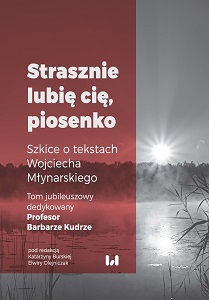
We kindly inform you that, as long as the subject affiliation of our 300.000+ articles is in progress, you might get unsufficient or no results on your third level or second level search. In this case, please broaden your search criteria.











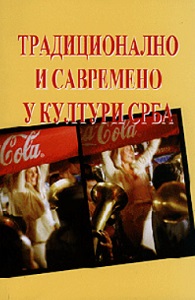
The paper sets forth a concept of research relating to the phenomenon of spectacle. Its introductory part deals with a speculative framework in which this phenomenon is highlighted by theories of Divigno, Debord, Baudrillard, Attali, and others. Ethnographic analysis of the spectacle implies the introduction of a new taxonom y, in which rituals and celebrations play the role of spectacle references, and events feature as its constitutent units. Based on such pattern, there emerge two spectacle models: the situation model, made up of festivities and ritualized activities, and the event model, as an evocative image and narrative medium. An ethnographic reading of the music spectacle in Serbia over the last 50 years spans an amplitude of social climate. The paper therefore provides an analysis of its developmental stages, where the following models may be distinguished: controlled spectacle, in political placarding; conventional spectacle, in the development of popular festivals and concerts; emblematic spectacle, as the staging of traditional festivities; “committed” spectacle, as an expression of subcultural styles; and “progressive” spectacle, as an expression of modern scenic technologies.
More...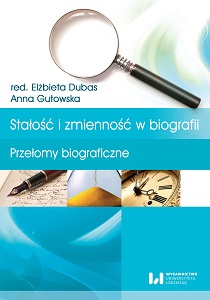
The life of every human being is an endless collection of facts, information, events, thoughts, feelings, dreams and experiences. The assumption that a biography, trying to give the comprehensive description of a human life, i.e. from the moment of birth until death, is going to reveal the whole truth about a person, is probably far-fetched at best. How many questions would need to be asked and how many would need to be answered in order to present a person from a multitude of perspectives? How many problems would need to be analysed, how many puzzles would need an explanation, how many documents would need to be found? Sometimes we undertake this effort, often as a result of the great impact of a given individual’s achievements on a society, and his or her uniqueness as a human being. The primary objective of this article is to analyse the biography of Jan Ekier, one of the most remarkable Polish artists of the twentieth and early twenty-first century in terms of some universal characteristics of his academic and artistic activity. Is there a single factor that would meet the requirement of universality in a life so rich and multithreaded that we could identify? Its discovery would be fascinating because of the artist’s life which lasted for over a hundred years, filled with work and a great number of achievements. That is why, it is worth looking at his life from this perspective.
More...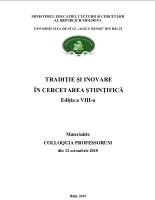
The history of musical pedagogy describes its formation based on different educational systems. Each of these systems pursued objectives, purpose and methodologies. In this study I intend to research and apply the concept of musical dramaturgy during the activities at the musical education lesson.
More...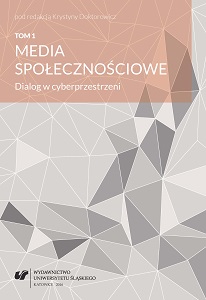
Research on the role of media in the lives of young people1 has a long tradition and dates back to the 1930s. It was in the United States that the use of radio as an important leisure activity for children was studied for the first time.2 Even earlier, in 1911, M. M. Davis made New York teenagers’ attendance of film screenings the subject of scientific interest. With the development of media, and above all the television and subsequent generations of new media, young audiences and users have become the subject of research of many disciplines such as psychology and pedagogy, sociology, cultural sciences and media studies… [fragment of introduction]
More...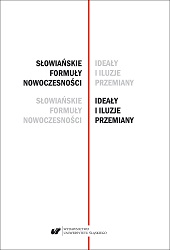
The art and poetry of the historical avant-garde contains prophetic elements referring to the later artistic development, which are not subject to a simple continuation but rather continuation via degradation. They result from the two prevalent tendencies at that time: from aesthetic aristocratism in the midst modern civilization’s equalizing tendencies and from seizure of non-art areas, rejection of tradition and reaching for sources; as well as from the perceived blemishes in the image of monolithic perfection. The post-avant-garde work rejected the ideology of the historical avant-garde believing in the role of the artist in the world, in unity, in aesthetic, social and technological utopias, by undertaking the following artistic activities: destruction in construction, language relativism, momentary artistic creation, emotionality against anti-emotionality, hybrid forms, anti-aestheticism, diffusion of arts, the focalization and multinterpretability of the world. The works of Srečko Kosovel and Julian Przyboś have in a different way initiated changes in the post-avant-garde poetry, using some of the mentioned strategies for expressing a different worldview.
More...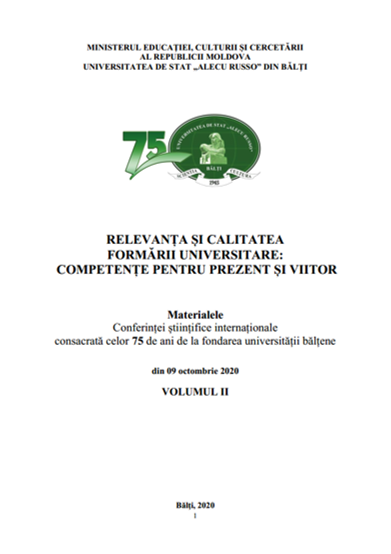
This article represents the historical stages established and developed in the artistic system of education in Moldova, where among the most important activities was the study of choral art. Some principles and methods of organizing choral activity in children's music school have also been developed
More...
The phrase Personal Ego suggests highlighting the need to review the educational process, viewed as a whole and extended throughout human life from the perspective of the lesson of Music Education with a complex and integrated character of the problems facing humanity today. Proceeding from the fact that Music Education as a conception is treated through a continuous individual process of spiritual self-perfection of the personality through multiple forms of contact with the art of music, musical-didactic activities in this field explore relation between personal ego and music, emphasizing different dimensions. In this sense, the musical education of students has an artistic character and is based on the living nature of student communication - art and the relationship between art and life
More...
In the article, the author examines the legacy of V. Zagorsсhi's piano in terms of its value for the pianist's concert and the teaching of students in the Republic of Moldova. Particular attention is paid to the first competitive approvals of the piano miniatures of the composer, which promoted the subsequent introduction of these pieces in the educational process, as well as to their numerous publications in local and union editions
More...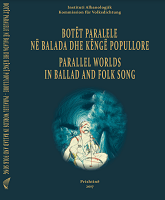
The lyrics to the popular song ‘Macushla’ were written by Josephine V. Rowe, with music composed by Harold Robert White (writing under the pseudonym of Dermot MacMurrough) in 1910. The song became an immediate hit when the great Irish tenor John McCormack recorded it for the Victor Talking Machine Company in 1911. Although ‘Macushla’ is not a traditional ballad itself, it may be regarded as ballad-like in the story it tells, the imagery it evokes, and the traditional motifs it employs. The singer is calling out to someone who is either dead or in a deep dream-like sleep resembling death, which may be seen as a parallel world or alternate reality. Nearly ninety years later, elements of ‘Macushla’ reappeared in a short story, ‘Million $$$ Baby’ (2000), written by Jerry Boyd (using the nom de plume of F.X. Toole), which was adapted by screenwriter Paul Haggis for the Academy Award-winning film Million Dollar Baby (2004), directed by Clint Eastwood. Boxer Maggie Fitzgerald, the titular Million Dollar Baby, is nicknamed Macushla or Mo Cuishle before she enters a parallel world when paralyzed due to a severe spinal cord injury sustained in the ring. Although Irish folk tradition often invokes sorrow and the violation of expectations, popular Hollywood films rarely do so—preferring more upbeat endings that do not disturb the expectations of their audiences. The representations of alternate realities and parallel worlds in ‘Macushla,’ ‘Million $$$ Baby,’ and Million Dollar Baby tellingly demonstrate the continuing presence of a traditional past in popular film, song, and literature.
More...